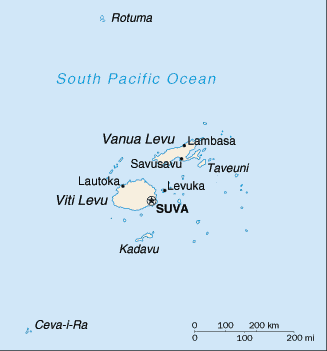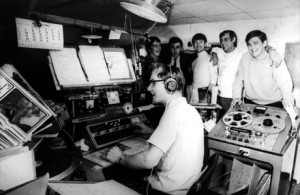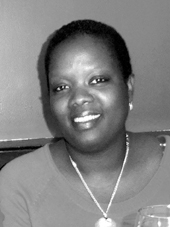 (Source: New Zealand Herald)
(Source: New Zealand Herald)
In a move inspired by pirate radio stations of the 1960s, political activists in the South Pacific are planning to position a Dutch-registered merchant vessel in international waters off the coast of Fiji to defy censors in the military dictatorship.
Opponents of the coup leader and self-appointed Prime Minister, Commodore Frank Bainimarama, hope to have the station broadcasting news and interviews by the end of next month to circumvent draconian media laws imposed on press, radio and television.
Since taking power in a military coup in December 2006, Fiji’s strongman has slowly eaten away at the country’s democratic freedoms, installing newsroom censors and cracking down on foreign media ownership.
Newspapers and radio stations now have to be 90 per cent locally owned, a stipulation that will almost certainly see the closure of the 140-year-old Fiji Times.
The popular title, which has been owned by News Ltd since 1987, has been emasculated since the censors moved in to demand the removal of any anti-government stories.
With most of the population too poor to access the internet or satellite television, most Fijians rely on the press and transistor radios for their news. That is why Usaia Waqatairewa of the Fiji Democracy Movement has opted for pirate broadcasting.
Now exiled in Australia, he plans to stream live programming to the ship from a Sydney newsroom and rebroadcast the material from a transmitter on the AM waveband.
“The basic purpose is to inform the public of what’s really happening in Fiji so they can make an informed decision about whether to support Bainimarama or not,” he said.
Even the phones no longer guarantee confidentiality since the Government ordered mobile and landline users to register all their personal details. One local carrier, Vodafone, is also demanding that customers provide a left-hand thumb print and PIN, which the user would normally keep secret.
The head of the Justice Ministry, Aiyaz Sayed-Khaiyum, claims the compulsory registration of all phones is the result of a spate of bomb threats and bogus calls. Critics suggest it is more to do with the interim Government wanting to create a database of callers whose views do not correspond with the regime’s.
Telephone paranoia even extends to some tourists. A German businessman who used his satellite phone in a restaurant recently was reported to the police, who promptly raided his hotel room. He left the country in disgust shortly afterwards.
So far, such stories have not damaged tourism, which is one of the few Fijian industries still booming. A devalued currency and a strong Australian dollar have made Fiji a bargain destination for overseas holidaymakers.
But while the tourists are still heading to Fiji, businesses are pulling out. Australia’s Commonwealth Bank has sold its Fijian arm, and Qantas is trying to sell its 46 per cent stake in Fiji’s national airline, Air Pacific. Despite these economic warning signals, Commodore Bainimarama remains determined to do things his way. He has promised to go to the country in 2014 but as he has repeatedly postponed his general election plans, few believe he will keep his word.
And if an application for a loan of more than $700 million from the IMF fails, “the country’s economic outlook will be shocking”, says Anthony Bergin of the Australian Strategic Policy Unit.
CRACKDOWN LEADS TO POVERTY AND FEAR
Fiji has had four coups in the past two decades and is facing an economic crisis that threatens to bring more instability to the 800,000 people who inhabit this sprawling archipelago.
And there are concerns about human rights as Commodore Frank Bainimarama cracks down on those who oppose his dictatorship.
In a rare interview aired by the Australian Broadcasting Corporation last month, the military leader said “we’ll need to shut some people up” before the country can return to democracy. “I don’t trust the people,” declared the Prime Minister, adding that he was none too happy about politicians or the judiciary, either.
After silencing the powerful Methodist Church and the chiefs who are the traditional rulers of this fiercely patriotic nation, Commodore Bainimarama sacked many judges.
Suspended from the Commonwealth, Fiji risks becoming a pariah in the region.
The Prime Minister also recently expelled Australia’s acting high commissioner to Fiji.
The reforms he talks about strike at the heart of Fiji’s racially divided society. For many years, about half the population was of Indian origin, descendants of indentured labourers brought to Fiji in the 19th century to help in the sugar industry. Faced with eviction from their farms after their leases expired, thousands of Indians have sought refuge overseas while many of those unable to leave have ended up in squatter camps.
When Commodore Bainimarama seized power he promised a fairer society, with legislation designed to protect the interests of the Indian community. But unemployment, poverty and fear have created a society whose people are often too scared to talk.
– Independent
By Roger Maynard
NOTE: We’ve been following the story in Fiji for more than a year now as it is a prime example of how important shortwave radio is to people who live in a country that restricts local media. Check out our previous posts about the situation in Fiji.


 (Source:
(Source: 

 Over the past weeks, many of you may have noticed that the website for Passport To World Band Radio, Passband.com (note: no hyperlinking here), has closed shop. This, of course, following the death of every SWLer’s favorite guide, the Passport To World Band Radio. If this is new to you, read some of our
Over the past weeks, many of you may have noticed that the website for Passport To World Band Radio, Passband.com (note: no hyperlinking here), has closed shop. This, of course, following the death of every SWLer’s favorite guide, the Passport To World Band Radio. If this is new to you, read some of our 